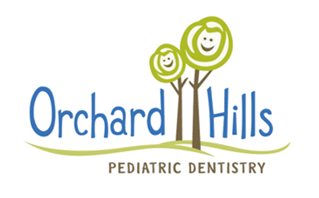The Life of a Kid's Teeth

Mom's Teeth & Prenatal
What to Expect in Prenatal Development
- Because there is a greater risk of gum problems during pregnancy, mothers should brush regularly with anti-gingivitis toothpaste.
- Expectant moms should visit their dentist for a check-up early in pregnancy.
- A baby’s teeth start to form during the 7th week of pregnancy. By birth, all 20 baby teeth and 4 of the permanent teeth have begun calcification in the baby’s jaws.
- A nutritious diet and good oral hygiene will ensure that the mother’s and baby’s teeth will be healthy.
Mom's Teeth & Prenatal
What to Expect in Prenatal Development
- Because there is a greater risk of gum problems during pregnancy, mothers should brush regularly with anti-gingivitis toothpaste.
- Expectant moms should visit their dentist for a check-up early in pregnancy.
- A baby’s teeth start to form during the 7th week of pregnancy. By birth, all 20 baby teeth and 4 of the permanent teeth have begun calcification in the baby’s jaws.
- A nutritious diet and good oral hygiene will ensure that the mother’s and baby’s teeth will be healthy.


What to Expect During Dental Development
- A child’s first set of 20 teeth are called baby, primary, or deciduous teeth. As these teeth fall out, they are replaced by 32 permanent, adult, or secondary teeth. Both primary and permanent teeth usually erupt (break through the gums) in a specific order, but the timing of eruption can vary by 1 or more years.
- Generally, from about 6 months on, children get four new teeth every four months. Most children have all 20 baby teeth by age 2 ½ to 3 years. The first permanent teeth, the 6-year molars erupt behind the second baby molars. This usually happens around the same time the lower front baby incisors are beginning to loosen and fall out. Most children have lost all baby teeth by the age of 13 years.
What to Expect at Ages 0-2 Years
- Clean mouth, gums, and tongue with gauze or a washcloth before teeth begin to appear.
- Pay special attention to lifting the upper lip when brushing the front teeth and brush the gum line.
- Begin a visit to a dentist when the first tooth appears and no later than 12 months.
- Parents should brush child’s teeth at least twice a day, after breakfast and before bed.
- Floss between all teeth that are touching at least once daily.
- Use a child-sized toothbrush with a smear of fluoride toothpaste.
- Signs of a healthy mouth include pink gums, white teeth, and no mouth sores.


What to Expect at Ages 2-5 Years
- Begin teaching preschoolers to brush by gripping the brush for the child and guide it around the mouth.
- Parents should brush child’s teeth at least twice a day, after breakfast and before bed.
- Continue to help the child brush until at least 6 years of age.
- Use a child-sized brush that is easy to grip.
- Increase toothpaste amount to pea-size as the child learns to spit after brushing.
- Floss between all teeth that are touching at least once daily.

What to Expect at Ages 5-12 Years
- Brush teeth at least twice a day; after breakfast and before bed.
- Teach children to brush their tongue to remove bacteria from the mouth.
- Coach brushing until age 11 when most kids can brush on their own.
- An adult should floss for kids under the age of 8.
- Eruption of permanent teeth may require decision about sealant application.
- Dentist may recommend a fluoride rinse if child can spit adequately.
- Dentist may recommend first orthodontic check-up by age 7 or 8 years (earlier or later depending on type of bite problem).
- Activity in sports increases and the permanent upper incisors are greatest risk for trauma… consider mouth guard for sports.
- Increased carbohydrate exposures and more challenges to control diet increase the risk for tooth decay.
- All permanent teeth are generally erupted by age 12, except possibility of four second molars and wisdom teeth.
What to Expect at Ages 5-12 Years
- Brush teeth at least twice a day; after breakfast and before bed.
- Teach children to brush their tongue to remove bacteria from the mouth.
- Coach brushing until age 11 when most kids can brush on their own.
- An adult should floss for kids under the age of 8.
- Eruption of permanent teeth may require decision about sealant application.
- Dentist may recommend a fluoride rinse if child can spit adequately.
- Dentist may recommend first orthodontic check-up by age 7 or 8 years (earlier or later depending on type of bite problem).
- Activity in sports increases and the permanent upper incisors are greatest risk for trauma… consider mouth guard for sports.
- Increased carbohydrate exposures and more challenges to control diet increase the risk for tooth decay.
- All permanent teeth are generally erupted by age 12, except possibility of four second molars and wisdom teeth.


What to Expect at Ages 12-18 Years
- Dental decay may be more of a problem during teen years than ever before.
- Gum disease (i.e. gingivitis) is more prevalent due to changing hormones.
- All permanent teeth are erupted with the possible exception of the third molars (i.e. wisdom teeth).
- Although some wisdom teeth come into the mouth normally, others need to be removed because of poor positioning and lack of space. The dentist will make sure the proper treatment is prescribed at the right time.
- 28% of high school students report using some type of tobacco. Tobacco is responsible for over 90% of oral cancers.
- The dentist can provide counseling for adolescent patients who use tobacco products.
- Malocclusions should be addressed and treated for esthetic and functional considerations.
- Tooth whitening and esthetic dentistry may be addressed.
Connect With Us
Office Hours
Monday-Friday with variable times to accommodate all of our patients.
Our kids dental team is ready for you!
Call 509-375-5000


